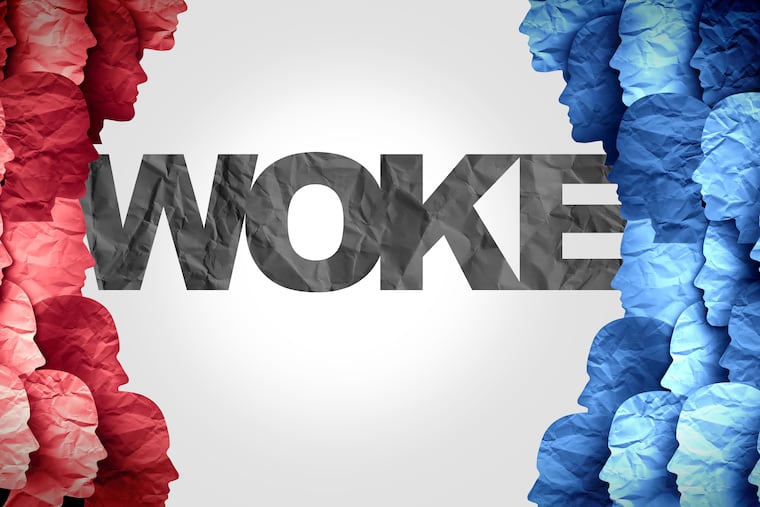How the right stole ‘woke’ and turned it into a derisive insult | The Angry Grammarian
The word that originated in African American Vernacular English to describe “awareness of racial or social discrimination and injustice” has been adopted by the right as a way to attack liberals.

For years, self-identifying as “woke” was a calling card for antiracism. But in the last week, both conservative firebrand Tomi Lahren and relia-liberal Bill Maher derisively referred to the “woke” Olympics.
What happened, and how did it happen so quickly? How did the word rapidly become pilloried by the left and right? The key lies in sleight of hand by a shifting part of speech.
Dating back at least to a 1938 folk song by Lead Belly, woke resided in African American Vernacular English to describe “awareness of racial or social discrimination and injustice,” according to the Oxford English Dictionary. The term’s definition and connotations, along with its usage frequency, were steady because white American English largely ignored it. Published dictionaries didn’t include woke.
Then in the late 2000s, “I stay woke” was the catchy refrain of Erykah Badu’s 2007 song “Master Teacher.” Lead Belly didn’t have Twitter, but after #blacklivesmatter took off as a hashtag in 2014, #staywoke frequently accompanied it.
White American English noticed. The Oxford English Dictionary added woke in June 2017, and Merriam-Webster included it that September. By October, Saturday Night Live had mocked it in a short called “Levi’s Wokes,” advertising “sizeless, style-neutral, gender-nonconforming denim for a generation that defies labels.”
The mocking was in good fun — but it also provided an opening. In the last year, teachings about antiracism have taken hold in national conversation. Some found uncomfortable truths dispiriting but didn’t want to appear anti-antiracism because that would sound a little, well, racist. So they needed another word to attack.
Which is how the right adopted woke as a favored bogeyman. The fact that it’s a verb-turned-adjective has made it easier to weaponize.
As this column previously explored with the term cancel culture, woke is a catchy buzzword in part because it futzes with parts of speech. For more than 1,000 years, woke was an intransitive verb meaning sleep was done. All of a sudden, a new usage comes along in which woke is not a verb but an adjective. Our brains recognize this shift, seeing a recognizable word used in an uncommon way, and linger on the term a little longer to understand how it’s functioning.
» READ MORE: How ‘cancel culture’ caught on so quickly | The Angry Grammarian
In that lingering, the word sticks in our mental sieve. A buzzword is born.
In 2021, conservatives have cannily identified woke’s catchiness — and they’ve pounced.
Donald Trump never once publicly uttered the adjective woke when he lived in the White House, but he seems to have learned the word recently, calling out “woke” generals in June and saying that “woke politics” accounted for the U.S. Women’s Soccer Team’s disappointing Olympics performance. Since the start of 2021, Republican politicians including Pat Toomey, Brian Fitzpatrick, Scott Perry, Mitch McConnell, Elise Stefanik, Mike Pompeo, Brian Kemp, Josh Hawley, Ted Cruz, Marsha Blackburn, Dan Crenshaw, Rick Scott, Jim Jordan, Lauren Boebert, Rand Paul, Matt Gaetz, and Louis Gohmert — to name a few — have all derided “woke” liberals/socialists/military/culture/mobs/banks/whatever.
It’s as if they’re all singing from the same hymnal.
Consequently, Google searches for woke have spiked this year, reaching an all-time high in April.
Like the term politically correct in the ’90s, woke became too mainstream too fast, allowing it to be coopted and reengineered as an insult. Once conservatives started labeling corporations as “woke,” progressives smelled a trend and weren’t exactly eager to claim the term for themselves either.
But a trend doesn’t diminish the importance of antiracist work, which is what wokeness ultimately defines. If conservatives or liberals think that’s just a trend, it’s time for them to wake up.
The Angry Grammarian, otherwise known as Jeffrey Barg, looks at how language, grammar, and punctuation shape our world, and appears biweekly. Send comments, questions, and non-rhotic consonants to jeff@theangrygrammarian.com.